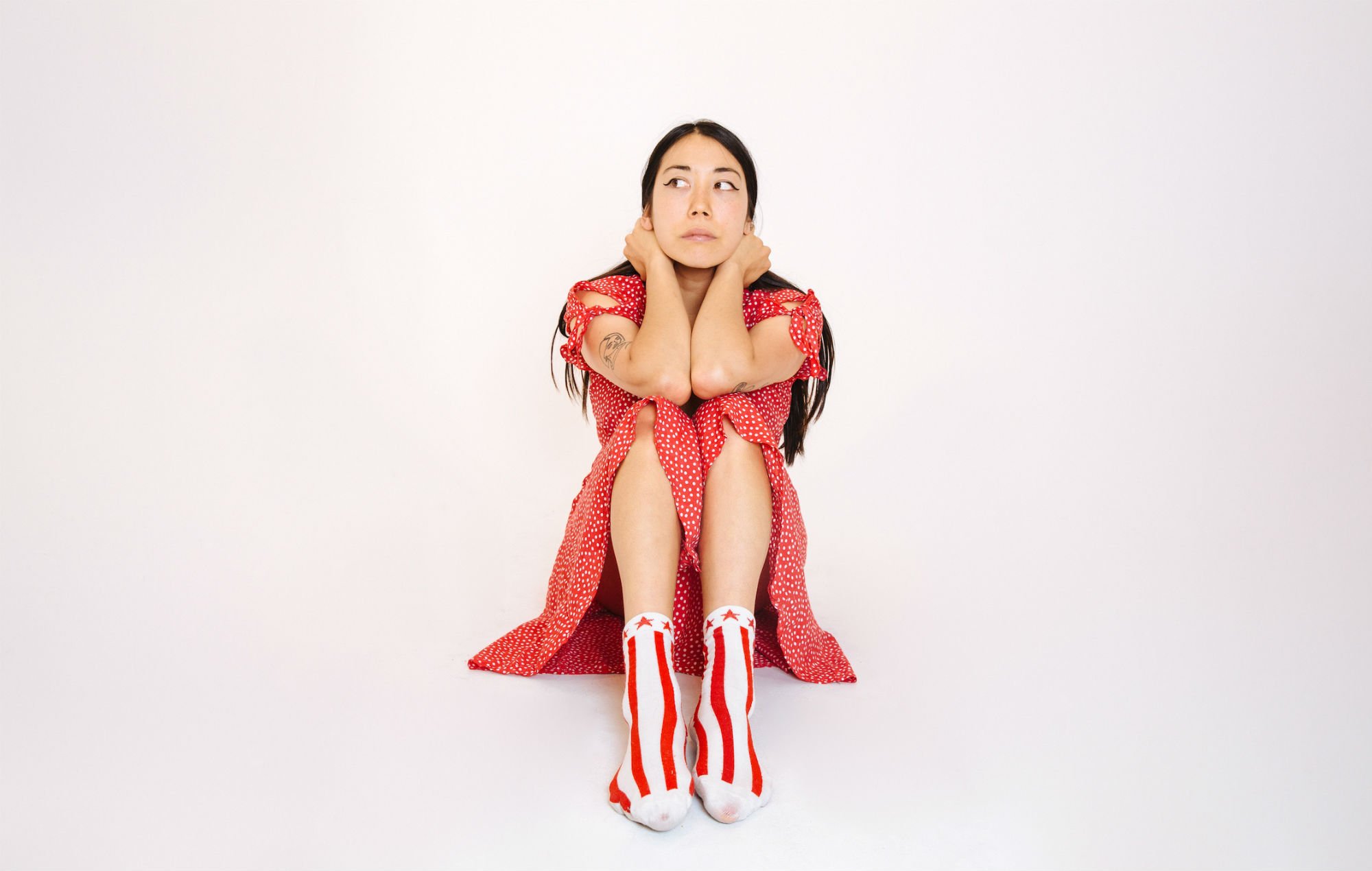By Kara Kokinos

Sasami Ashworth carries herself with a certainty that could inspire envy from many but instead endears you to the musician even more than you thought possible. Canned answers are common fair in music journalism but Ashworth is deliberate in how much she lets you see behind the curtain. Her manner is one of processing and reacting, working herself up to reveal all of the churning and spitting parts of herself.
Fresh off of the debut of SASAMI, the eponymous solo album that is sure to be the first of many, Ashworth is already bringing out members of all of her communities. Her first headlining tour features members of the queer community as well as people of color and a whole slew of women. Sasami credits the “literal bubble” of LA for introducing her to many of the people she has brought out, rounded out by musicians she has found on tour, at festivals, and labelmates. Cultivating those connections is an active effort for her, and one she takes seriously, “I’ve been lucky enough to be brought out on tour without having any music out, so being able to pay that forward and cultivating the community I’ve benefited from is definitely something I think about.”
The roots of Sasami’s identity are deeply anchoring; her grandmother possesses much of the same independence and self-determination that Ashworth embodies. Her Halmoni only moved to the USA and opened up a kimchi company at the age of 82. Capturing this process for the ‘Morning Comes’ video is an ode to a woman who has made such a holistic and treasured element of her life into something others can consume and be nurtured by. Much like her grandmother’s kimchi, Sasami’s labor takes on different meaning with every person consuming it, hearty in nature. It’s this entrepreneurial yet creative spirit that is mirrored in Sasami, who has numerous musical talents in addition to director and soundtracking credits.
Her background in the latter has allowed Sasami to “understand the different ways to convey visual description with music” and the ways to “make musical phrasing into a translation of non-musical language”. While her commissioned work is challenging and experimental, her own songwriting does not manifest like that.
Preciousness is so often how you hear musicians conceptualize their music, with their choices being intentional, exacted, and held so closely. Despite the deliberate choices, from the decision to record the album on tape to the melding tones and distortion that unify the album, she doesn’t care how the album is listened to. Whether it’s playing “in the background, or on the train, or on the bed, I don’t care,” she muses, “I think music should serve the listener. I don’t think of this is a very precious album. I don’t care if it’s on the best system or not. It’s about the strength of the song.”
Sasami’s music didn’t manifest as a cherished process; her life has been a non-stop barrage of touring with former band Cherry Glazerr, writing music, and acting as a producer – before even setting out to create this album. Most of her songs began as simple structures, vocals accompanied by piano or guitar in her voice notes, with an “intuitive test” – she would walk away from the song for a few days before listening to it again and assessing whether it seems like a good song from someone else’s perspective. Needless to say, it worked. The product is a tight album that draws from an abundance of genres and influences but puts out a sonic universe that is held together by discordant harmonies and distortion out of every vessel, that test the strength of the melody they stretch out of.
This test of songwriting became a guiding voice when investing in her creativity. She would write on tour, arranging the songs in the studio that passed muster. Eventually, she even began procrastinating through writing, referring to a “postpartum depression” of sorts setting in as the end of the recording process crept closer. Sasami knew that once something was released, she would not be able to go back and do it again. “I have restrictions and I’ll never be wholly done,” she admits, but has confidence in being finished, with the knowledge that she is “the hardest person on myself.”
Sitting on these songs has been a necessary part of the process but most of the album has been done since ‘Callous’ was released. Sasami laughs at how relieved she is that the album is out now, reflecting on her struggle of touring without having music released. “All of the songs are pretty different and I was afraid of all of my musical identity being based on the first singles,” Sasami chuckles nervously about the shoegaze influence of the lead singles while stressing the abundance of music to choose from and her reluctance to fit in a certain genre, as if boxing her in would even be possible.
You can see Sasami at Brighton Music Hall on April 27th with Sen Morimoto.
Excited about IFF? Check out the Asian American filmmakers featured in the line-up through Boston Asian American Film Festival and submit to their Short Waves Competition, ending May 5th.
